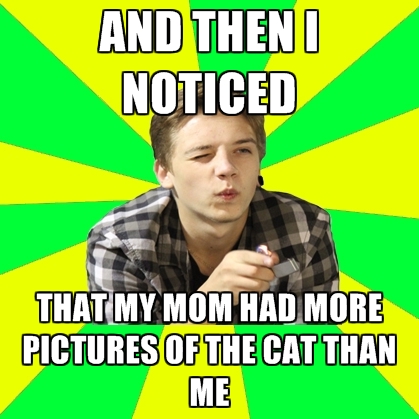Vacuum.
Spelling that stupid word baffles me every time I see it. Because: double U doesn’t exist in the English language, does it? And if it does, it shouldn’t. Also, why isn’t there a double C? And where is the E?
So, whenever it comes up, and somehow it does, I spell the word wrong, not only because the spelling makes no sense, but because there is no trick to remembering it. For example, I can remember how to spell “believe” because “I believe a lie.” But vacuum? No. I’ve tried telling myself the vacuum hose can be formed into U’s when it’s hung up, but it doesn’t; it forms into egg-shaped O’s.
And so I spell it wrong. And it’s annoying.
However, making sure you spellcheck and otherwise edit your personal statement is a crucial last step in your editing process. In my last post, I wrote about refining your draft for structure and flow. Today, I’ll write about how to vacuum up the grit in your grammar. Follow these tips:

1. SHORTEN YOUR SENTENCES
When we’re trying to convey the complexity of our thoughts, it’s easy to get long-winded, which can result in sentences that make you feel like you’re under water and running out of breath.
When you edit your work, make sure your sentences are as tidy as they can be. Any sentence longer than 20 words merits review. Let me give you an example:
“When I was riding on a flamingo-shaped inner tube on the lazy river that hot day at the waterpark with my friend Justin, I realized that I wanted a career in ocean engineering.”
While the writer is being honest with her details, too many of them get in the way of what her realization was. The sentence is stronger if she writes:
“I knew I wanted a career in ocean engineering while riding a flamingo-shaped float at the waterpark.”
That being said, not all of your sentences should be short, “Dick loves Spot” sentences. There should be variation among them. Reading your piece aloud helps to spot where sentences are too similar to each other.

2. CUT WORDS
When you shorten sentences, you are already cutting words, which is a good thing. But think about trolling over your piece with a net and catching all of the words within your sentences that don’t contribute to what you’re saying.
- Look for adverbs (really, very, usually, especially, particularly, etc.), which are often unnecessary. Adjectives should also get the ax if you have a lot of them.
- Look for “to be” verbs. For example, the sentence “I am a meticulous researcher” can be replaced with “I research meticulously.”
- Delete helping verbs. For example, turn “I am going to be hosting a benefit,” into “I will host a benefit.”
- Look for places where you can explain more simply. Example: “English literature was stretched across my horizon and was beginning to outline the foundation of my identity.” Fix: “English literature had begun to shape who I was.”
3. SCAN FOR PUNCTUATION
Punctuation is pretty simple if you keep it simple. And with this kind of writing, you really should. After all, your goal is to be understood as much as possible, not to show off your clever use (or risk of misuse) of an em dash. As such, follow these rules:
- Make sure each sentence ends with a period.
- Unless in extreme circumstances, make sure no sentence ends with an exclamation point. As F. Scott Fitzgerald said, “An exclamation point is like laughing at your own joke.”
- Avoid semi-colons. They are almost always used incorrectly and, when used too often, are pretentious and distracting.
- If you have trouble with comma usage, read your piece aloud again. In places where you have to take a breath, like here, insert a comma.
4. USE THE RIGHT WORDS
If there is one sure-fire way to look foolish, it’s by employing a four-syllable, 25-cent word incorrectly. If you feel the slightest bit of doubt that you are using the right word, head directly to the dictionary. If its definition applies, great. If it’s just close, don’t convince yourself it’s close enough. Use a simpler word instead.

5. ONLY PARTLY RELY ON SPELL-CHECK AND GRAMMAR-CHECK
Let’s face it, these systems aren’t perfect. So let’s review tricks to fix the most common errors that these systems won’t necessarily find:
- its/it’s: You use “it’s” if it can be replaced with “it is.” Period. No exceptions. “It’s (it is) a beautiful day.” When it cannot be replaced with “it is,” you use “its.” Example: “The milk is past its expiration date.”
- they’re/their/there: Like with “it’s,” “they’re” is only used when it can be replaced with “they are,” as in “They’re coming soon.” “Their” is the possessive, as in “They wore their sweaters.” You can test “their” by replacing it with “our.” “There” is a place or existence of something: “You left your pencil over there.” You can test it by replacing it with “here.”
- you’re/your: Use “you’re” if you can replace it with “you are.” Example: “You’re coming over, right?” If can’t be replaced with “you are,” use “your.”
- than/then: “Than” requires a comparison: “I’m taller than you.” If there isn’t a comparison required, use “then.”
- passed/past: “Passed” is the past tense of “to pass.” So, “she passed her test,” “He passed her the ball,” or “How did you pass your time?” “Past” is used when “to pass” cannot be replaced.
- advise/advice: “Advice” is a noun: “He gave her advice.” “Advise” is a verb: “He advised her about her love life.”
- site/sight/cite: “Sight” is vision or the ability to see. “Cite” is to quote. “Site” is a place, like a work or building site.

EXHALE AND EAT CANDY
Once you’ve gone through your essay as if combing for lice, you have officially finished editing your personal statement. If you’re happy, it’s time to celebrate. For me, that would mean devouring a Cadbury Fruit & Nut bar and never looking back.
If you still feel you aren’t there, it’s time to contact me at [email protected]. I can guarantee you’re closer than you think, but sometimes it’s better to have an objective set of eyes to take a look. I’d be honored to do it.

